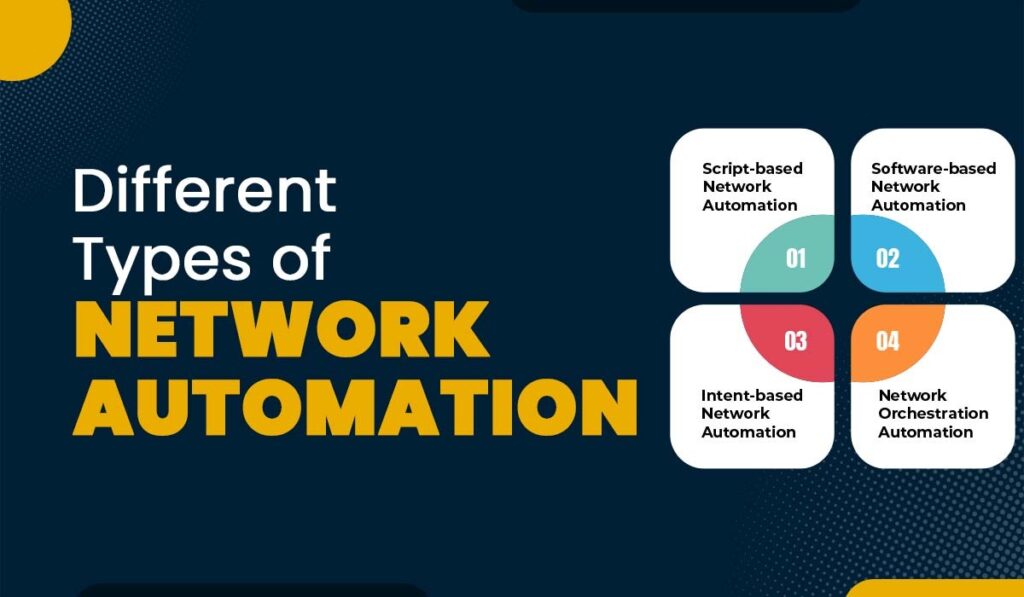Introduction
Are you also confused about which Cisco certification is best for you? If yes, this blog on CCNA vs CCNP vs CCIE is for you. It will help you understand these certifications and select the most appropriate certification for yourself.
Over the past several years, Cisco certifications have become more popular, and these are considered one of the most valuable certifications in the IT industry today. This blog will break down the differences between these three popular networking certifications to help you choose the right one for your career. These certifications can give you an edge in the job market, especially when applying to big tech companies.
In line with your career goals, PyNet Labs offers a comprehensive range of Cisco training courses, from foundational CCNA training to advanced CCIE Enterprise Infrastructure Training. Without any more delay, let’s start by comparing – CCNA vs CCNP vs CCIE.
CCNA vs CCNP vs CCIE
When we compare CCNA vs CCNP vs CCIE, you will learn that Cisco Certifications are like climbing a ladder, where CCNA is the first step, while CCNP is the Second, and CCIE is the final Step of the ladder. CCNA or Cisco Certified Network Associate Certification is perfect for IT newcomers or those who want to start their networking careers.
CCNP or Cisco Certified Network Professional Certification, represents a significant jump after CCNA. The exams are tougher and demand a deep dive into advanced topics. This certification is ideal for experienced network professionals with CCNA training or certification, who want to specialize and take on design and implementation tasks.
Finally, CCIE or Cisco Certified Internetwork Expert, sits at the top of ladder in Cisco Certifications. It is perfect for only some network professionals as it is among the toughest certifications in the IT field. Consider the number of network engineers in the world and how many of them are CCIEs, you will understand it is not for everyone. The CCIE exam is super hard, requiring years of experience and real-world problem-solving skills. This certification is for network professionals who want to be the leaders and top experts in the field.
Now it’s time to discuss the difference between CCIE vs CCNA vs CCNP in detail. Let’s start with CCNA.
CCNA or Cisco Certified Network Associate
The Cisco Certified Network Associate (CCNA) certification is an entry-level certification offered by Cisco. It validates your foundational knowledge and practical skills to manage and troubleshoot modern networking technologies. This makes it a popular choice for candidates with both technical and non-technical backgrounds who are looking to launch a career in networking.
By earning your CCNA, you demonstrate a solid understanding of networking fundamentals, making you an asset for companies building and maintaining their networks.
Target Audience
Entry-level IT Professionals and networking beginners.
Prerequisites
There are no strict requirements for the CCNA course as it is designed as an entry-level certification. However, basic computer knowledge will help you learn the concepts more quickly.
What exam do you need to take for CCNA?
To become CCNA certified, you must take the CCNA (200-301) exam.
Why pursue CCNA?
- If you are new to the networking industry, CCNA is the first step to build a solid foundation.
- It opens up door for entry level networking job roles.
- It also prepares you for advanced courses such as CCNP and CCIE.
Job Roles after CCNA
There are plenty of job roles you can choose from after CCNA. Some of these are mentioned below:
- Technical Support Engineer
- L1 Networking Engineer
- System Administrator
- Network Support Engineer
- Desktop Support Engineer
- NOC Engineer
- Protocol Testing Engineer
Pros of CCNA
- Entry-level and ideal for beginners.
- Build strong networking foundation.
Cons of CCNA
- Doesn’t cover networking topics in-depth.
Now, let’s move on to CCNP.
CCNP or Cisco Certified Network Professional
Cisco Certified Network Professional (CCNP) is a professional level certification offered by Cisco. It proves that you have the knowledge and skills to plan, implement, and troubleshoot complex enterprise networks. You can choose from 7 different specializations under CCNP certification depending on your interest. Some popular ones include CCNP Enterprise, CCNP DevNet, and CCNP Security.
Target Audience
It is perfect for networking professionals having a few years of experience and looking to enhance their skills and advance in their careers.
Prerequisites
You should have a basic knowledge of Networking i.e. CCNA. It is also recommended to have at least a bachelor’s degree before the CCNP.
What exam do you need to take for CCNP?
To get CCNP certified, you must take two exams, Core Exam and Concentration Exam. Let’s take an example to understand clearly. For CCNP Enterprise, you need to take –
- Core exam – ENCOR (350-401) or Implementing and Operating Cisco Enterprise Network Core Technologies that covers core enterprise technologies.
- Concentration exam – You can take any of the 7 concentration exams. However, ENARSI (300-410) or Implementing Cisco Enterprise Advanced Routing and Services is the most chosen one.
Why Pursue CCNP?
- It is perfect for networking professional who want to specialize in a certain networking area.
- It offers in-depth topic coverage of networking.
- It paves the way for various high-paying job roles.
Job Roles after CCNP
There are numerous job roles that you can choose after CCNP. Some of these mentioned below:
- Network Engineer
- Network Security Engineer
- L3 Network Security Engineer
- Network Support Specialist
- Infrastructure Specialist
- Network Architect
- Network Administrator
Pros of CCNP
- It focuses on real-world applications and advanced networking topics.
- It allows specialization in various networking areas.
Cons of CCNP
- It requires prior networking knowledge and experience.
- It has 2 exams and higher difficulty level.
CCIE or Cisco Certified Internetwork Expert
CCIE is an expert level certification and one of the most respected certifications in the IT industry. It is widely recognized in the industry as a benchmark for advanced networking knowledge and skills. It proves that you have complete IT lifecycle skills, from planning and design to operation and optimization. Getting CCIE certification can significantly expand your career prospects and earning potential.
Target Audience
It is a perfect option for senior network engineers, architects, and networking experts who want to validate their networking knowledge at the highest level.
Prerequisites
To get CCIE certification you need to fulfill specific prerequisites which we have discussed below:
- CCNP Core Exam: For CCIE Exam Eligibility, you must pass the CCNP Core Exam. This exam tests theoretical knowledge of networking concepts and technologies. For instance, if you want to go for CCIE Enterprise, you must first pass CCNP ENCOR (350-401) only then you will be eligible for the lab exam.
- Practical Experience: Having at least 4 to 5 years of practical experience working on Cisco technologies is recommended but not mandatory. This experience is essential to develop the practical skills and knowledge needed to pass the CCIE exam.
What exam do you need to take for CCIE certification?
To become CCIE certified, you must take the CCIE Lab Exam.
For instance:
If you want to choose the Enterprise track, you will be required to take the CCIE Enterprise Infrastructure v1.1 lab exam.
Note: Similarly, CCIE also has six other laboratory exams, you can choose based on your technical area of interest.
Why Pursue CCIE?
- It’s ideal for senior network engineers who want to upgrade to the highest level.
- It is highly valuable and leads to significant higher salaries.
- Opens door to highest levels networking jobs.
Job Roles After CCIE Certification
There are many job roles that you can go for after CCIE. Some of these mentioned below:
- Senior Network Engineer
- Network Security Expert
- Solutions Architect – Network Security
- Senior System Software Engineer
- Senior Network Architect
- Senior System Network Engineer
- Enterprise Network Solution Architect
Pros of CCIE
- It is one of the most prestigious Cisco certifications.
- It can give you highest salary hikes.
Cons of CCIE
- It is extremely difficult to pass.
- It is very costly.
Now, let’s move on to see the comparison between CCIE vs CCNA vs CCNP in a tabular form.
CCNA vs CCNP vs CCIE in a Tabular Form
Below is a table that shows the differences between these three certifications –
| Factors | CCNA | CCNP | CCIE |
|---|---|---|---|
| Certification Level | Associate-level certification | Professional-level certification | Expert-level certification |
| Depth of Knowledge | Covers fundamentals of networking concepts | Covers advanced networking concepts and troubleshooting techniques | Covers the expert skills and knowledge of Cisco technologies |
| Prerequisite | No eligibility requirements | No requirements, but students recommended to have CCNA knowledge | Students must pass the CCNP core exam |
| Type of Exam | One exam: CCNA (200-301) | Two exams: Core exam and Concentration Exam | One exam: CCIE Labs exam |
| Job Roles | Technical Support Engineer, Network Support Engineer, Desktop Support Engineer | Network Security Engineer, System Engineer, Network Administrator | Senior Network Engineer, Senior Network Architect, Network Security Expert |
| Average Salary | CCNA Salary Ranges from 2.5 LPA to 4 LPA | CCNP Salary Ranges from 3.5 LPA to 7 LPA | CCIE Salary Ranges from 7 LPA to 12 LPA |
Now, you have a good idea what is the difference between CCNA vs CCNP vs CCIE.
CCNA vs CCNP vs CCIE: Which to Choose?
Here are a few factors to consider before choosing one of these:
Experience Level
- CCNA: If you are just starting your networking career, CCNA is perfect for you.
- CCNP: If you have a few years of experience in the networking domain and now wants to move ahead in the journey, CCNP is the step you take.
- CCIE: If you are a seasoned professional who want to reach the top of the networking domain, CCIE is the step for you.
Career Goals
- CCNA: CCNA is best if you are looking for entry-level job roles such as Help Desk Technician and Network Administrator.
- CCNP: CCNP is perfect for you if you are looking for mid-level networking job roles like Network Engineer or Systems Engineer.
- CCIE: CCIE is best for networking professionals who want to go for job roles such as Network Architect or Lead consultant.
Time and Cost
- CCNA: CCNA required very less for preparation and relatively cheap as compared to CCNP and CCIE.
- CCNP: It requires two exams to pass. So, the cost and time is high.
- CCIE: It is one of the most costly IT Certifications and requires a lot of time to prepare.
Consider these factors and you will have your answer to the question: Which certification is right for you?
Frequently Asked Questions
Q1 – Is CCIE certification higher than CCNA certification?
Yes, when we compare CCIE vs CCNA, CCIE is higher than CCNA certification. As before CCIE, you should have CCNA knowledge and then pass CCNP core exam. This all proves that CCIE is one of the higher certifications in the IT industry.
Q2 – What is the recertification period for CCNA?
CCNA’s recertification period is 3 years.
Q3 – Which is the most difficult exam in Cisco?
The CCIE lab exam is Cisco’s hardest exam. To pass it, you need determination, patience, and hard work.
Q4 – How many exams do you have to take for CCNP?
For CCNP certification, you must take two exams: the core exam and the concentration exam.
Conclusion
Cisco certifications have always been the best for you to enter the IT industry. These networking certifications provide many opportunities and help you advance your career. In this blog, we have discussed the difference between CCNA vs CCNP vs CCIE. So, based on all the above factors, you can choose different certifications that match your experience level in the IT or networking industry.





